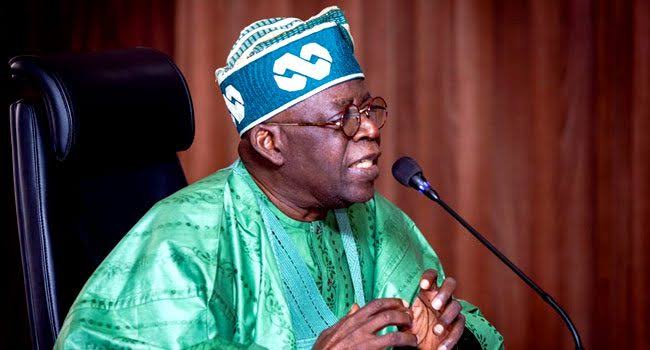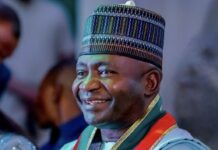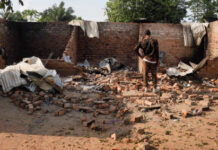By Shu’aibu Usman Leman
As Nigeria approaches the pivotal 2027 general election, the nation faces a critical juncture, contending with escalating security crises and a perceived leadership deficit. Public discourse is dominated by urgent concerns regarding governmental efficacy and the pervasive insecurity that has gripped the country.
Allegations made by All Progressives Congress (APC) stalwart Abubakar Kawu Baraje, during his 70th birthday celebrations in Ilorin in 2022, cast a stark light on the complexities of this crisis.
Baraje asserted that the influx of Fulani militias from neighbouring nations, including Mali, Chad, and Senegal, was orchestrated to bolster the APC’s 2015 electoral victory, raising serious concerns regarding the destabilising influence of foreign elements on Nigeria’s domestic affairs.
Baraje’s assertions painted a disturbing picture of a previously peaceful coexistence between Nigerian and foreign Fulani communities, now transformed into a source of violent threat.
He criticised the federal government’s perceived inaction in addressing this insecurity, advocating for localised self-defence initiatives, such as those controversially spearheaded by Sunday Igboho in the South West, as desperate responses to escalating threats against local communities.
Abubakar Kawu Baraje’s allegations that the APC facilitated the entry of foreign Fulani militias to secure victory in the 2015 election are grave and necessitate thorough investigation.
If substantiated, these claims would indicate a serious compromise of national security and electoral integrity.
The subsequent transformation of these foreign elements into a source of violence and insecurity raises profound questions about the government’s capacity to protect its citizens and uphold the rule of law.
The alleged influx of foreign militias poses a substantial threat to Nigeria’s stability and security, and their purported use to influence electoral outcomes undermines the democratic process and raises questions about the legitimacy of the incumbent government.
The government’s perceived failure to secure lives and property has prompted self-help initiatives, highlighting a breakdown in governance.
In a nation that values human life, justice, and effective governance, such allegations would typically prompt rigorous investigation and accountability. However, the perceived lack of action in Nigeria raises concerns about governmental commitment to transparency and accountability.
The severity of the security crisis is most acutely felt in Plateau State, where nearly three decades of persistent violence have resulted in significant loss of life and a climate of pervasive fear. This crisis is compounded by economic deprivation and deeply entrenched ethno-religious divisions. Vulnerable populations, particularly women and children, bear a disproportionate burden, while sporadic governmental security interventions fail to address the root causes of the violence.
Beyond Plateau, the crisis extends to Borno’s resettled communities, which remain vulnerable to persistent assaults from Boko Haram. Incidents of armed incursions in Benue State further illustrate a rapidly deteriorating security landscape, eroding public trust in governmental institutions. The North-West contends with its own profound challenges, facing rampant banditry that threatens to precipitate a dramatic surge in violent incidents and widespread civilian displacement.
The Catholic Bishop of Sokoto, Matthew Hassan Kukah, echoed these sentiments in his Easter 2025 message, warning that Nigeria is rapidly descending into a “vast national mortuary” due to unchecked insecurity and violence. He implored President Bola Ahmed Tinubu to take immediate and decisive action to rescue Nigerians from this perilous situation, emphasising the urgent necessity for food security and an end to the bloodshed.
In a poignant metaphor, Bishop Kukah likened Nigeria’s plight to a crucifixion, urging the President to “bring us down from this cross of evil” and eradicate the “forces of darkness” that inflict suffering upon the nation.
A government’s paramount obligation is the protection of human life and property. This commitment necessitates the allocation of adequate resources, the implementation of robust policies, and the enforcement of accountability measures to effectively safeguard the lives and assets of its citizens.
Practically, this can be achieved through ensuring substantial financial investment in law enforcement, security infrastructure, and social services to create a comprehensive safety net for the community and implementing targeted policies that foster public safety, such as proactive crime prevention strategies, community policing initiatives, and efficient emergency response systems.
It is also pertinent to establish transparent mechanisms for addressing human rights violations and holding perpetrators accountable, thus reinforcing trust in the legal system and providing comprehensive support and compensation for victims of crime and disasters, to aid in their recovery and restoration of dignity.
Ultimately, a government’s dedication to protecting human life and property should be evident in its actions and reflected in the well-being and dignity of its citizens.
This commitment not only enhances public trust but also fosters a more stable and secure society.
As the electorate prepares for the 2027 election, the demand for competent and accountable leadership has intensified. Voters are increasingly discerning, seeking candidates who demonstrate credible action plans focused on security, justice, and sustainable development.
The stark disconnect between the lived realities of citizens and the perceived detachment of political elites was underscored by public criticism of President Tinubu’s overseas travel amidst domestic turmoil
As the election approaches, candidates will be judged not merely on their charisma or party affiliation but on their demonstrable commitment to addressing the multifaceted security challenges and restoring public confidence. This must include addressing the humanitarian crises compounded by climate change and economic instability.
Economic diversification and job creation are essential to mitigate social unrest, particularly among youth susceptible to recruitment by extremist factions.
Furthermore, the scope of the crisis extends beyond immediate security threats. The erosion of the rule of law, the proliferation of corruption, and the systemic failure to address socio-economic inequalities contribute significantly to instability. The need for judicial reform, transparent governance, and equitable resource distribution cannot be overstated.
The crisis of internal displacement, the collapse of crucial infrastructure, and the breakdown of social cohesion all require urgent attention.
At this critical juncture, political aspirants must recognise that safeguarding life and property is paramount.
Without a comprehensive, multi-pronged strategy rooted in justice, community engagement, and sustainable economic growth, Nigeria risks remaining trapped in a cycle of violence and instability.
The stakes for the 2027 election could not be higher, as voters demand not merely rhetorical promises but concrete commitments to ensure their safety, dignity, and future. By confronting these intertwined challenges head-on, with a focus on long-term sustainable and equitable solutions, Nigeria can aspire to emerge resilient and united, charting a collective path towards a brighter future for all its citizens.










